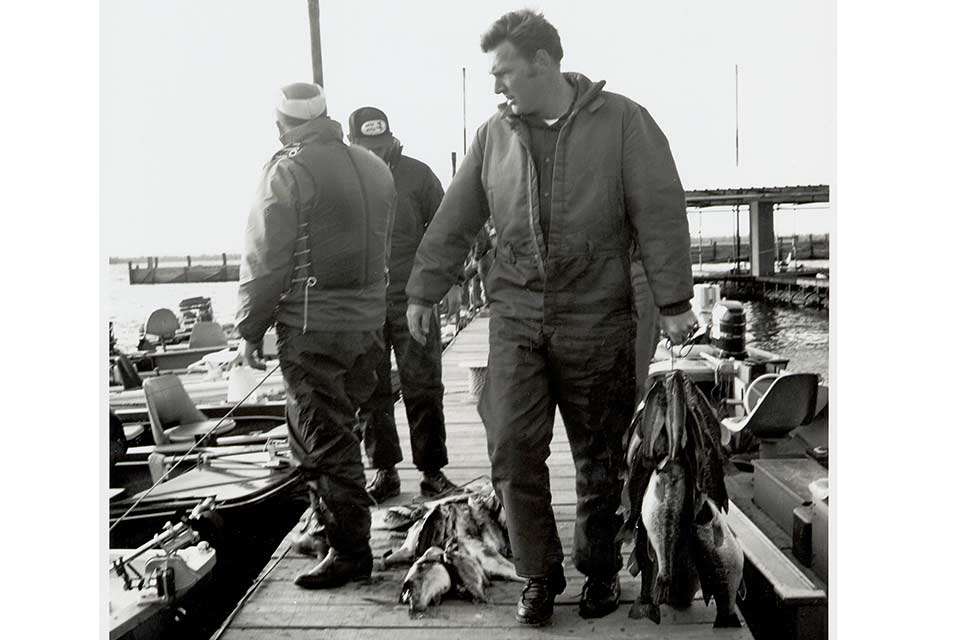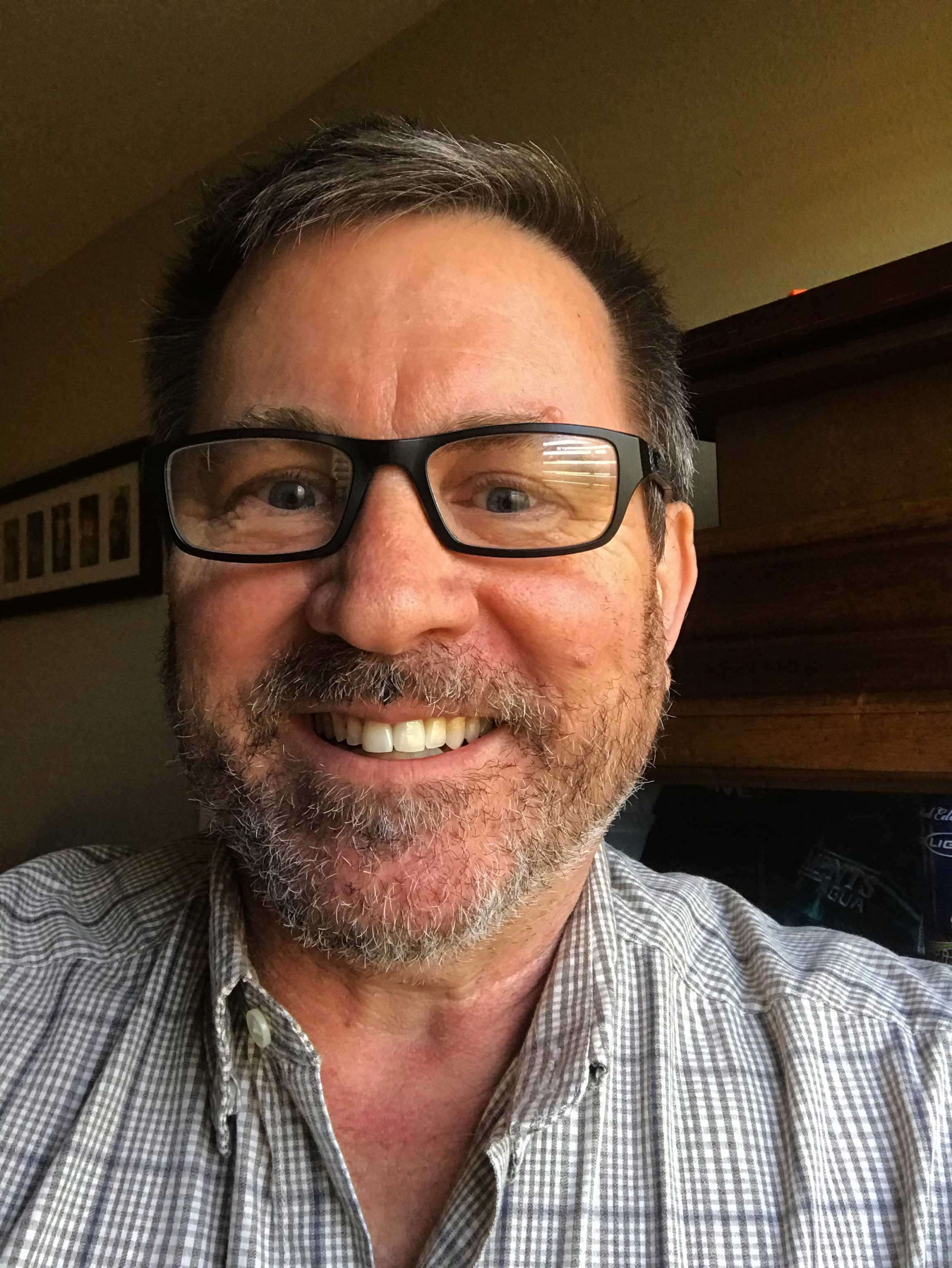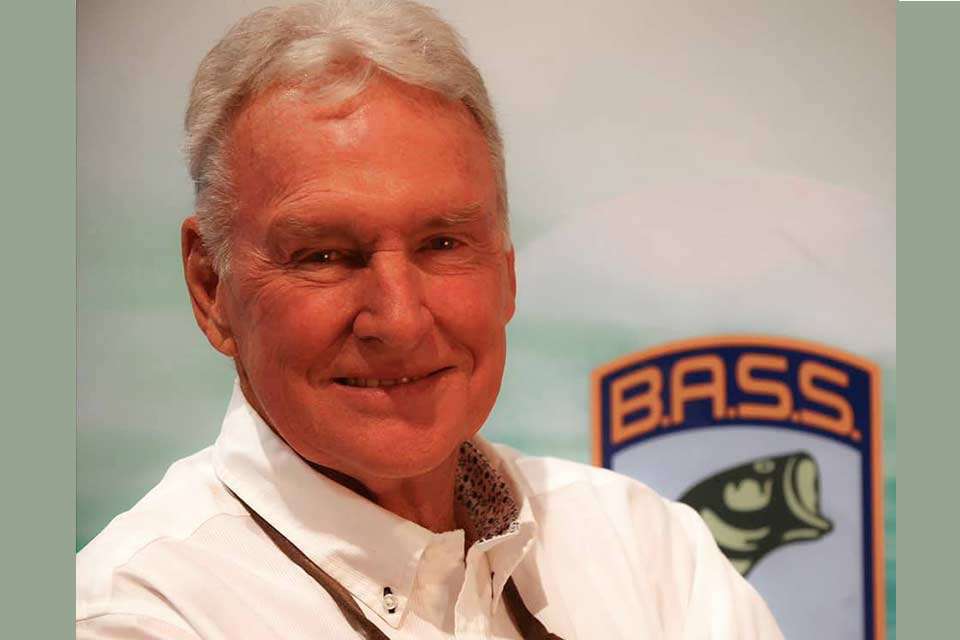
While addressing company meetings and get-togethers, Jerry McKinnis would almost always say, “I want to tell you a little story …”
McKinnis, who died early Sunday morning at 82, put life into storytelling, and his life was quite a story. Growing up in St. Louis, his infatuation with playing baseball was replaced with fishing, and he worked to become one of the most influential people in the outdoor fishing industry.
“It’s a sad day,” B.A.S.S. CEO Bruce Akin said. “Jerry packed a lot in those 82 years, that’s for sure. I was joking, it was just like Jerry to get an extra hour. He was always getting the most out of a day. To the bitter end, he got that extra hour in last night. He’ll be missed, for sure.”
For 44 years, McKinnis told homespun stories of people and places on his popular show, The Fishin’ Hole, ESPN’s longest running behind SportsCenter. His connections with the network and meticulous broadcast standards led him to become an icon in outdoors TV production and eventually a part-owner of B.A.S.S., where he worked on his dream of escalating the sport and the anglers.
“B.A.S.S., the organization, was important to him, and the anglers were really important to him,” his son, Mike McKinnis said. “I was in a lot of meetings with Dad, where tough decisions were being made. You’re trying to make good decisions for the business, but he always had the anglers at the top of the list.
“I’m not sure people know how much he cared for the anglers and how much he wanted them to have professional careers like other sports.”
McKinnis’ ideas for competitive fishing on TV helped launch the FLW Tour, and in 2001 his JM Associates in Little Rock took over production of The Bassmasters on ESPN. Raising pro fishing in the national conscience was his greatest hope.
“Every time he talked about anglers, even in FLW days, it was ‘What can we do to elevate these guys? What can we do to make them household names?’ That’s what he wanted,” TV host Tommy Sanders said. “He thought fishing could be one of the top sports, and that anglers could be one of the idols of the youth that great football and baseball players had been.”
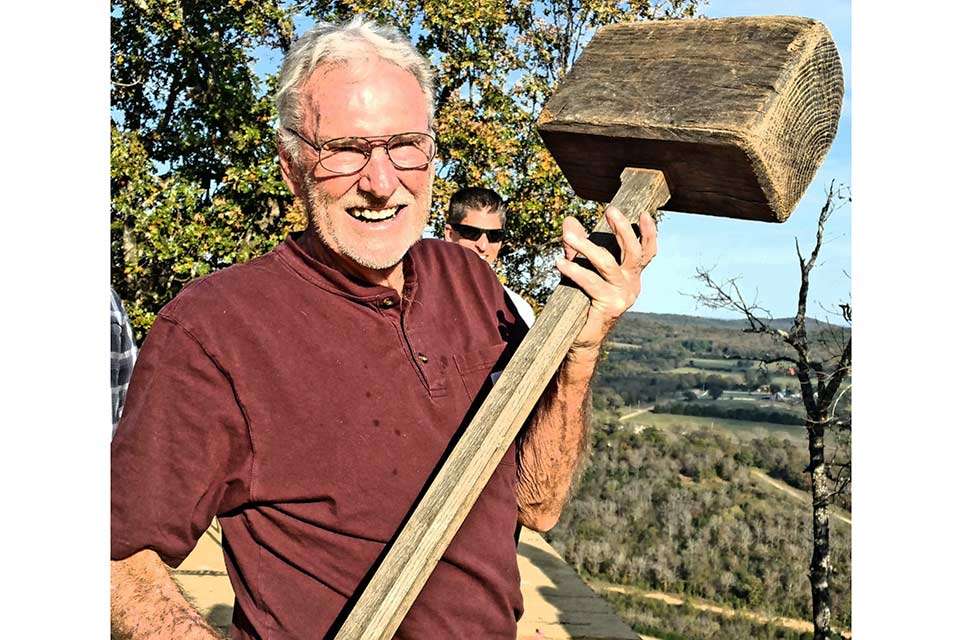
Becoming quick friends over their love of Cardinals baseball, Akin said McKinnis brought him on board and showed him the ropes of bass fishing. In meetings, Akin said he witnessed his hard-charging passion for the sport but also his sensitive side and affinity for anglers, who he believed were the best teachers.
“His dream was always to make it a lot better for the anglers,” Akin said. “He always took their position and looked at it from their eyes. Always. Any decision we were making, he always wanted it to be even better than it was. I don’t think people realize how much he was a friend of the angler.
“But he also was very creative, from his show to all the productions. And he was always aiming for perfection. OK, as the AT&T commercial says, is not OK. He strived to make everybody around him better and pushed them.”
Sanders said anyone who worked with McKinnis probably drew his ire if they ever just dialed it in, but it was never personal, just about the team winning.
“He did not want our team to lose a single game,” Sanders said. “Everything he said or did was, ‘We got to get things better for the anglers.’ But he would still go off on selected anglers from time to time because he thought they were letting down the team. He thought they weren’t being all they could be and making this sport as meaningful for the fans as it could be. It was about, ‘Please, don’t stray from the team’s mission here.’”
Teamwork was ingrained in McKinnis as he grew up in St. Louis, where baseball is king. He was part of the Knothole Gang, watching Cardinals games through a hole in the outfield fence of Sportsman’s Park, and he later pitched to Hall of Famer Stan Musial during an appearance at McKinnis’ little league field. He excelled as a pitcher in high school and went on to play in the minor leagues for several years in the A’s organization.
“His whole career, his whole life, basically, has wheeled around sports,” Sanders said. “He was the ultimate sports fans. Life was an analogy for sports, and vice versa, with him.”
Married with a young family, he moved to the White River, where he had first met Forrest Wood on a trout trip. McKinnis guided on the famed fishery, where he met more future business associates. He said he got the bass bug during a night trip on Bull Shoals Lake, getting hooked from that first “tick” on his line.
His next move was to run the marina on Lake Maumelle near Little Rock. In a stroke of luck, a TV sports anchor happened to walk past him slinging a stringer of fish on the dock. He was asked to come down to the studio and give a fishing report, which spawned his show. The self-starter immersed himself in learning all about what it takes to make a show.
“He was always excited to learn and do new things and he wanted to be a part of anything that was creative,” Mike McKinnis said. “He loved everything about television, video production and movies. He just also happened to be a passionate fisherman.”
Bucking the trend, he invested in a Bolex film camera like the ones used in movies because it provided much better images. His easy nature and folksy delivery drew fans and earned his show syndication, and he branched out to tell stories of fishing across the country. On one of his trips to the northeast, he learned about a new network on fledgling cable TV — Entertainment and Sport Programming Network. After pitching ESPN his show, he became its first client.
And he went to work, some years producing 52 shows. He traveled far and wide, fishing with luminaries in the industry as well as the likes of Ted Williams, Bobby Knight and Whitey Herzog, the latter two becoming great friends. At the studio, McKinnis would to take VHS tapes of the processed film with time codes and go to work editing.
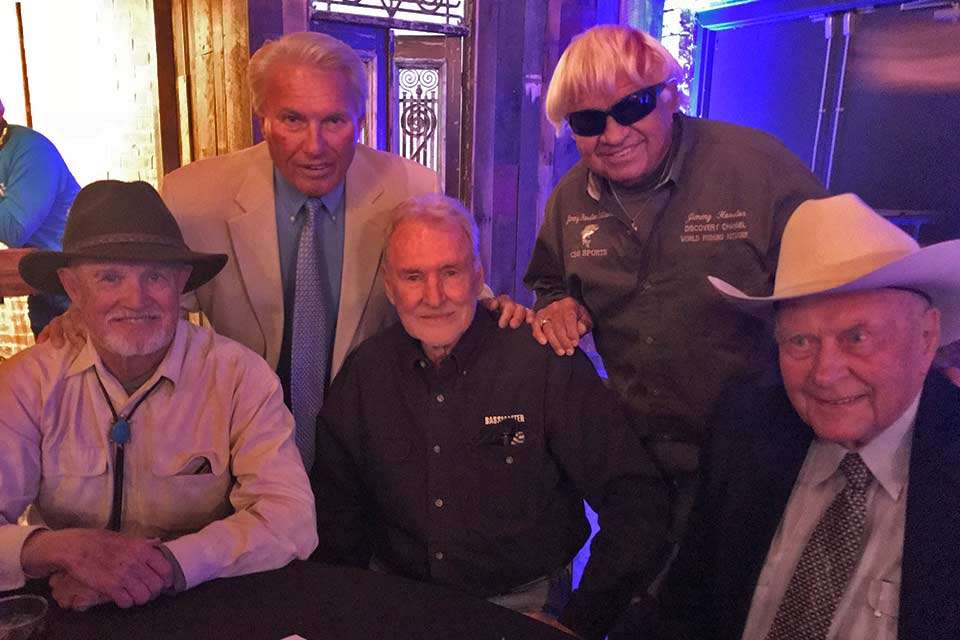
“He’d take a yellow legal pad and put together on paper every shot and write every bit of narration that was in that show,” Sanders said. “It was all him before he gave it to the editors. I imagine he worked 70-, 80-hour weeks for years.”
His attention to detail garnered the respect from ESPN, and more work, including producing the Stihl Timbersports Series, ESPN’s Great Outdoor Games, The Spanish Fly with Jose Wejebe, the Oh Boy! Oberto Redfish Cup and the Quiznos Madfin shark fishing tournament series, among others. Overall, he served as executive producer for more than 20 shows.
With thousands of hours of content coming out of the JM offices, Sanders credits McKinnis with creating the first real outdoors network. He worked with ESPN’s Bill Fitts, another pioneer of television, to make a lineup of outdoor shows, or block, that aired every weekend morning.
“He invented that whole genre of an outdoor network,” Sanders said. “He was in charge. They trusted him enough. Fitts knew he could sustain the quality that ESPN needed and they entrusted him in doing the whole block. They recruited the other shows, but they would send all their stuff to Little Rock.”
McKinnis invited Sanders, who had done some voiceover work for JM, to be among those auditioning for host of ESPN Outdoors. Sanders said it was his first lengthy sit down with McKinnis where they became friends.
“We talked and talked and never stopped talking” he said. “He was just a friend from the first time we ever sat down. We loved stuff that was just great production quality, which was almost nonexistent. Such a great friend, just incredible. It was a really great relationship.”
Mike McKinnis came to work with his father at JM in 1990, took over as executive director and is now a vice-president at B.A.S.S. His early morning text informing employees of his father passing included a single sentence that summed up his marvel: “What a force he was.”
The foundation McKinnis set has JM sending crews to places like Key West for offshore boat races and Reno, Nev., for airplane races. Videographers follow college football coaches like Kansas’ Les Miles. There are stalwarts like Zona’s Awesome Fishing Show, and a huge team brings Elite Series events to fans via Bassmaster LIVE.
“He created this playground for all of us,” Mike McKinnis said. “It’s a real privilege that we all get to do what we do. The things we’ve done and seen, the places we’ve been, is because he created it. It’s because of his wonderment of the world.
“He was really smart, but he was like a kid in that he was always excited at anything new and different. He was not afraid to do anything. If you think of him as just a guy who fishes, you don’t know him. You look at all the things we do that brought the sport along, it was because of him.”
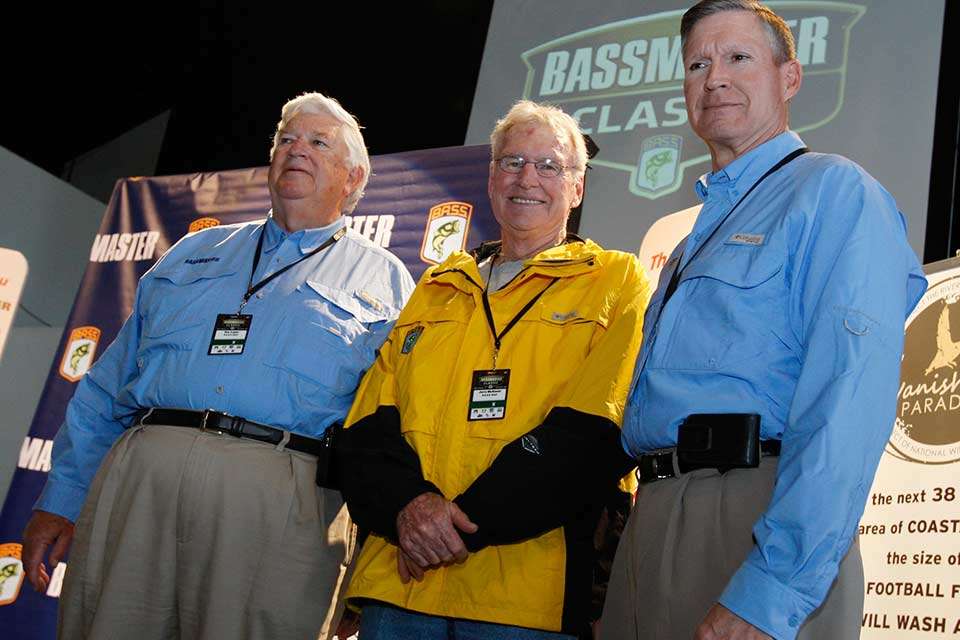
About the time most retire, McKinnis teamed up with Don Logan and Jim Copeland to purchase B.A.S.S. in 2010. ESPN CEO George Bodenheimer respected McKinnis so much he asked him to their New York offices to gauge his interest in buying the organization. Logan said Bodenheimer introduced the two and gave them an hour to discuss the possibilities of working together. It only took 45 minutes.
“You have a feeling,” Logan said. “You just kind of learn there are certain people you know you can get along with. There’s trust — a person’s word is their bond. You get that when you talk to someone for a while.”
McKinnis being an icon and knowing the inner workings of the fishing world made Logan feel at ease with the purchase.
“So we came together,” he said. “We had a great run. We had been great friends the whole time and had great respect for one another. He always spoke about taking it to a higher level — make everything we do a little better.”
McKinnis chronicled much of his life in his book, Bass Fishing, Brown Dogs & Curveballs — The Adventure of Jerry McKinnis. Writing on notepads while waiting at airports and such, McKinnis penned 30 chapters that with photos and illustrations filled 340 pages. He began: “It would seem to me that everyone’s life is nothing more than an unlimited amount of occurrences, events and good or bad moments strung together giving each of us an adventure.”
McKinnis’ adventure led him to a life not many dream of. His work took him around the globe to fish with icons and earned him inductions into the International Game Fish Association Hall of Fame, the National Fishing Hall of Fame and the Bass Fishing Hall of Fame, among others.
That all began in his knack to simply tell stories.
“There’s no doubt about that,” Mike McKinnis said. “He did not do a fishing show. He told stories about people and places, and they just happened to spend some time in a boat doing it.
“He always talked about the little tick on the end of the line when you’re fishing. That little moment, that split second of time, is why everything else we’ve talked about happened for him and around him. That one little tick.”
That one little tick spawned much more than one of his “little stories.” It built a legacy.
Funeral arrangements for Jerry:
Friday Nov. 8, 3:00 pm
St James United Methodist
321 Pleasant Valley Dr
Little Rock, AR 72212
Monday Nov. 11, 2:00 pm
1st Baptist Church
721 Alford St.
Flippin, AR 72634
